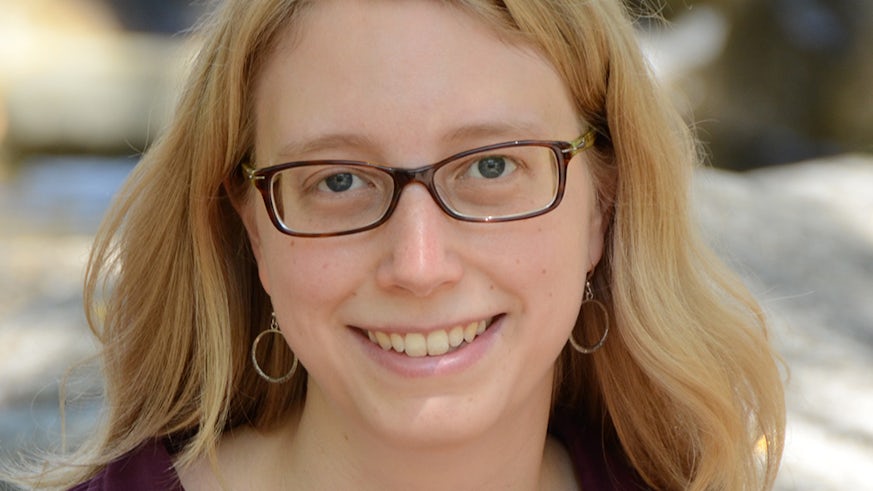Cardiff scientist wins prestigious award for gravitational wave detection
31 October 2018

A scientist involved in creating the ultra-sensitive detectors needed to glimpse gravitational waves for the very first time has been awarded a prestigious Philip Leverhulme Prize.
Dr Katherine Dooley, from Cardiff University’s School of Physics and Astronomy, has picked up the £100,000 prize for scientific work ‘that has had a significant international impact’.
Dr Dooley is an experimental physicist who specialises in developing the equipment needed to reach out far into the Universe and detect gravitational waves.
Gravitational waves, first predicted by Albert Einstein over 100 years ago, are tiny ripples in space-time that are emitted as a result of extreme cosmic events, such as the colliding of two black holes.
Having spent 4 years in residence at the Laser Interferometer Gravitational-Wave Observatory (LIGO) in the US, Dr Dooley put some of the key processes in place that made it possible to detect gravitational waves for the very first time in 2015 after decades of searching.
The discovery was made using two detectors in the US, made up of 4km-long L-shaped experiments that bounce lasers back-and-forth off a collection of mirrors and become fractionally distorted in the presence of a gravitational wave.
Dr Dooley’s work was primarily focussed on increasing the laser power so that researchers could look deeper into the Universe and thus have a better chance of making more detections. The techniques Dr Dooley is currently developing will also be important for future generations of gravitational wave detectors, which are likely to be built over coming decades.
The prize comes as Dr Dooley is establishing a programme of experimental research into gravitational wave astronomy at Cardiff University.
This will build on the world-leading expertise that currently exists at the University, which also played a significant part in the detection of gravitational waves.
Cardiff University was one of the founding members of LIGO and for the last 30 years has been developing novel algorithms and software that have now become standard search tools for detecting the elusive signals.
Dr Dooley gained her PhD in Physics from the University of Florida in 2011, before moving on to postdoctoral research roles at the Albert-Einstein Institute in Hannover, Germany and the California Institute of Technology. Before joining Cardiff University in 2018, Dr Dooley was an Assistant Professor at the University of Mississippi, where she still holds a research post.
In 2017, Dr Dooley was made a prestigious Kavli Frontiers of Science Fellow by the National Academy of Sciences in the US.
Each year, the Leverhulme Trust awards thirty Philip Leverhulme Prizes to recognise researchers at an early stage of their career, whose work has already had a significant international impact, and whose future research career is exceptionally promising.
Professor Matt Griffin, Head of the School of Physics and Astronomy at Cardiff University, said: “I’m delighted that Katherine’s ground-breaking work has been recognised with this prestigious prize.
“She is an extremely talented and well-regarded scientist who has already made a significant contribution to the field of astronomy in her early career. The detection of gravitational waves was arguably one of the greatest scientific discoveries of modern times and it would not have been possible without Katherine’s key contributions.
“With the help of this award we can continue to grow our experimental gravitational wave research programme here at Cardiff University and develop the future technologies and techniques needed for the next generation of gravitational wave observatories.”




